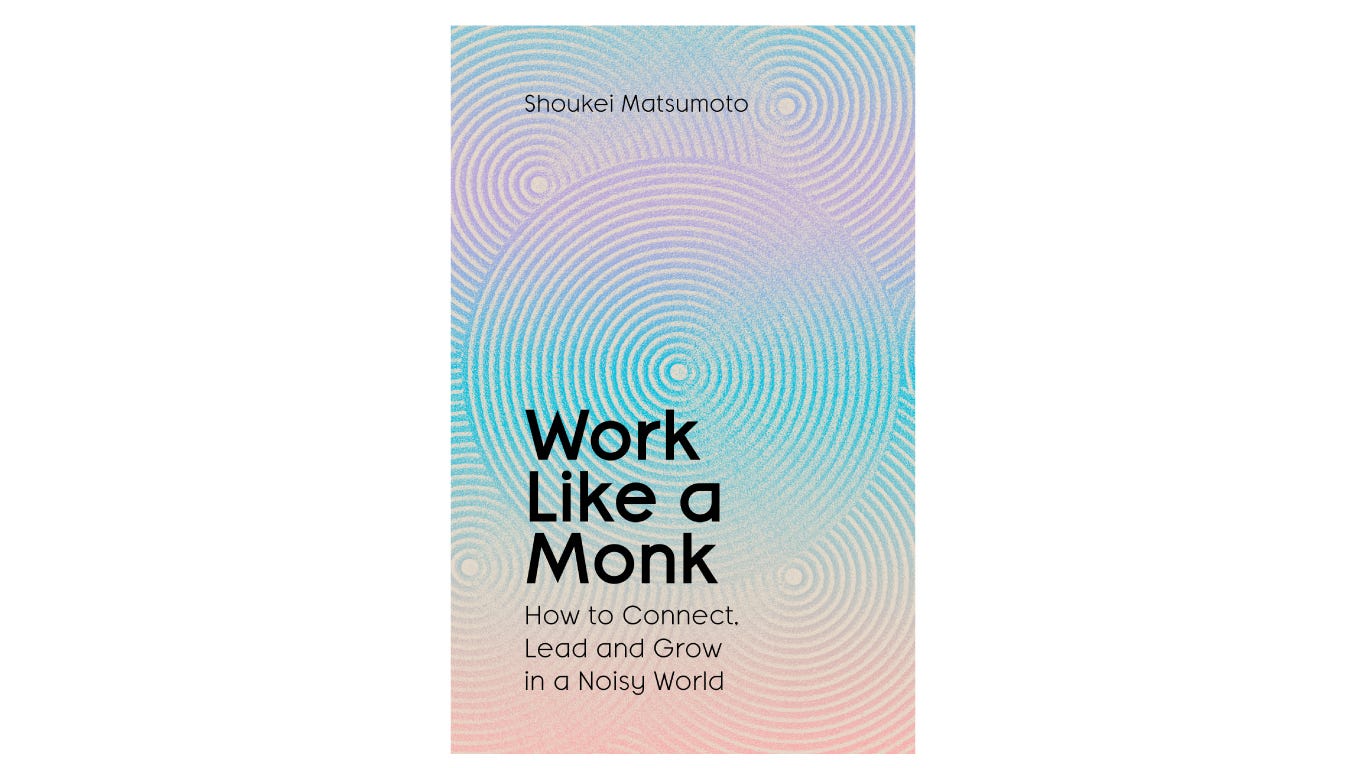"Work Like a Monk"-A new book will be published soon. (2)
Beyond Wellness Programs: A Monastic Approach to Psychological Safety and Belonging
My new book "Work Like a Monk − How to Connect, Lead and Grow in a Noisy World" will be released by Simon & Schuster on 11 September 2025.
- For HR, DEI, and Wellbeing Leaders -
Beyond Wellness Programs: A Monastic Approach to Psychological Safety and Belonging
Many of us in HR, DEI, and wellbeing are facing a paradox. Companies are investing more than ever in wellness programs, yet burnout rates remain stubbornly high and true engagement feels elusive. We offer meditation apps and yoga classes, but they often feel like bandages on a deeper wound. What if the problem isn’t that our solutions are wrong, but that we’re addressing the wrong problem? What if the root cause isn’t a lack of perks, but a culture of noise and disconnection?
This question led me down an unconventional path. While serving as a Buddhist monk, I pursued an MBA to understand the language of modern organizations. I was struck by the constant use of war metaphors—"capturing" market share, "defeating" rivals. It became my mission to act as a translator, bridging the gap between ancient wisdom and the modern workplace, seeking not victory, but mastery of ourselves.
This journey revealed powerful frameworks that address the root causes of our current workplace crises. Here are three principles from my new book, Work Like a Monk, that offer a new operating system for organizational wellbeing.
From Active Listening to "Mindful Listening": The Foundation of Psychological Safety.
We teach active listening, but it’s often used as a technique to influence or win an argument. "Mindful Listening," as practiced in the Buddhist tradition, is not a technique; it’s "a way of being." It’s about becoming a vessel that can receive both the explicit and implicit voices of others, even listening to the shared silences. When a leader truly listens in this way, they create a space where team members feel seen and valued for their "True Person," the essential self beyond their role. This is the practical, daily cultivation of psychological safety.From Diversity Metrics to "Interbeing": The 'Why' Behind True Inclusion.
DEI initiatives often stall when they are perceived as a top-down mandate. The Buddhist concept of "Interbeing" (engi) provides the missing philosophical ‘why.’ It teaches that "nothing exists alone – everything is interconnected." A powerful metaphor for this is Indra’s Net, a cosmic web where each node is a jewel that reflects every other jewel. In this model, excluding or marginalizing anyone isn’t just unethical; it’s a systemic failure that diminishes the light of the entire net. This reframes DEI from a compliance issue to a core principle of organizational resilience and innovation.From Perfectionism to the "Helpless Fool": The Antidote to Burnout.
Burnout is fueled by a culture of perfectionism. The Jōdo Shinshū (Pure Land) concept of the "helpless fool" (bonbu) is a radical antidote. It is the honest recognition of our own fallibility. In the book, the temple priest calls himself a "fool," explaining, "Nen Buddhism is the path that allows helpless fools like me to become Buddha". When a leader can model this vulnerability—admitting mistakes and embracing imperfection—it destigmatizes failure. It creates a culture where it is safe to be human, which is the ultimate form of psychological safety and the most powerful defense against burnout.
These principles are not about adding another program. They are about shifting the very foundation of how we relate to one another at work. It is about moving from managing human resources to cultivating human beings. It is about asking ourselves a more profound question: How can we become good ancestors for the future generations of this organization?
My new book, Work Like a Monk, explores this path through a dialogue between a businessperson and a monk. Discover how to transform your workplace culture, one mindful practice at a time.


